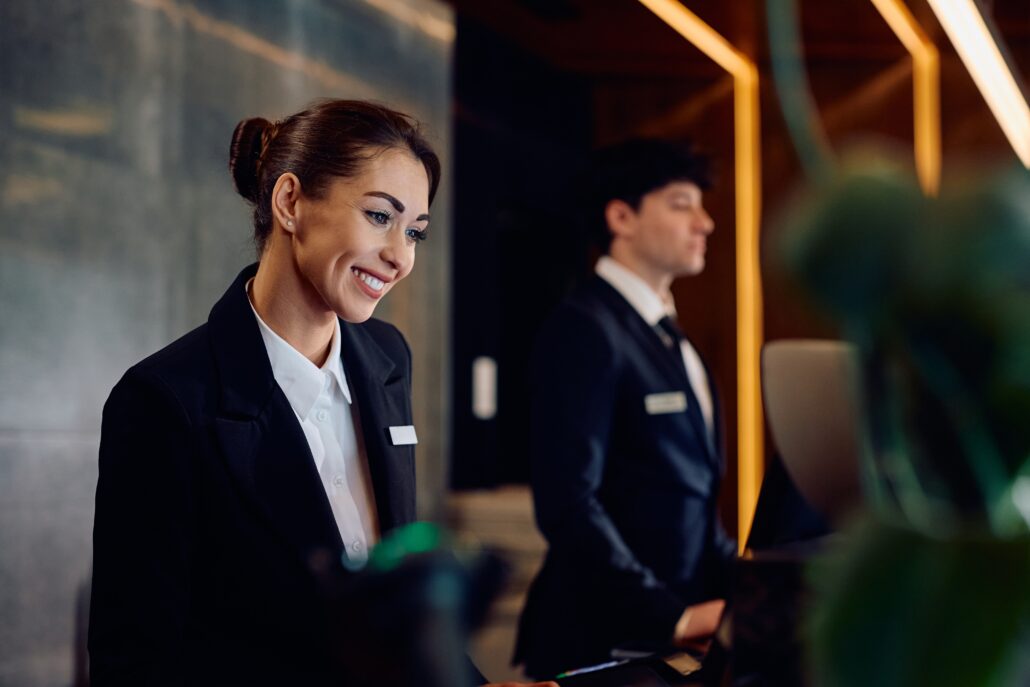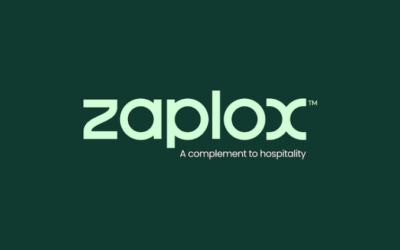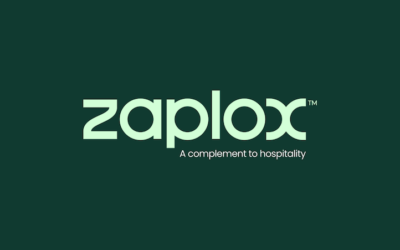Today, technology plays a pivotal role in shaping guest experiences. However, many hoteliers still harbor misconceptions that can hold them back from fully embracing its potential. In this article, we’ll address three common myths surrounding hotel technology, exploring why the opposite is true.
Myth 1: “Technology replaces human interactions and personal service”
Reality: Technology elevates personal service by streamlining operations and enabling staff to focus on enhancing guest interactions.
Personal service is at the heart of creating memorable guest experiences. However, the belief that adopting technology diminishes human interactions is outdated. In fact, technology is a crucial tool for hoteliers to enhance, not replace, personal service.
Recent studies show that 73% of travelers prefer using their mobile devices for hotel check-ins or other self-service options. This doesn’t indicate a desire for less human interaction, but rather a shift in guest expectations. Today’s travelers want greater convenience and control over their experience—whether that’s through mobile check-ins, digital keys, or self-service kiosks. However, they also value human interactions for personalized service and memorable experiences.
By automating repetitive administrative tasks, hotels can free up staff to focus on delivering exceptional guest experiences. This is especially important as many hotels face labor shortages. A 2023 study by the American Hotel & Lodging Association (AHLA) revealed that more than 80% of hotels are understaffed, meaning hoteliers need to allocate human resources where they add the most value—personalized interactions.
Furthermore, technology provides hoteliers with valuable guest data, allowing them to deliver more personalized experiences.

A 2022 study by Oracle highlights the growing importance of offering more personalized services to enhance guest experiences,
based on individual preferences.
Conclusion: Technology empowers hoteliers to offer the best of both worlds: efficient service where guests desire it and human interaction where it adds the most value. The myth that technology replaces human service ignores the powerful synergy between the two—when leveraged effectively, technology allows for deeper, more meaningful interactions.
Myth 2: “Guests don’t want to use technology”
Reality: Today’s guests expect and appreciate technology that enhances convenience, control, and personalization during their stay.
Contrary to the belief that guests shy away from using technology, studies and trends reveal quite the opposite. Travelers have grown accustomed to using technology in nearly every aspect of their lives—from mobile banking to online shopping—and their expectations for hotels are no different.
Research shows that 73% of travelers are more likely to choose hotels that offer self-service technology, such as mobile check-in and keyless entry. This reflects a strong demand for convenient, frictionless experiences, where guests can control aspects of their stay from the palm of their hand.
While the pandemic brought challenges, it also accelerated the demand for digital self services. Many hotels adopted contactless solutions during this period to ensure guest safety, and these innovations have remained popular.
What’s crucial for hoteliers to understand is that it’s not about replacing human interaction with technology, but giving guests multiple choices. Some guests may want a quick, tech-enabled check-in to get to their room faster, while others may want face-to-face interaction with staff. The key is offering flexibility. By providing technology as an option, hotels empower guests to tailor their experience according to their own preferences.
Conclusion: Hotels that invest in technology are not only meeting guest expectations but are also staying competitive in a market where convenience, speed, and personalization are essential. Today’s guests are eager for innovations that make their stay more seamless and enjoyable.
Myth 3: “We don’t have the technical skillset to implement technology”
Reality: Hotels don’t need to be tech experts themselves—as long as they partner with the right technology provider.
The idea that implementing new technology requires deep in-house technical knowledge can be intimidating. But the truth is, hotels don’t need to have their own team of tech experts. What they need is the right partner who understands both the technology and the hospitality industry.
This is where selecting the right technology partner becomes crucial. A strong partner doesn’t just provide the tools and solutions—they offer guidance, strategic insight, and hands-on support every step of the way.
A common misconception is that adopting new technologies like mobile check-ins or digital keys means hiring technical experts. However, according to a 2022 study by the Hospitality Technology Association, an increasing number of hoteliers are successfully implementing technology with the support of external partners. These hotels are benefiting from the fact that their technical partners do the heavy lifting—from implementation to integration, ensuring a smooth transition without disruption to daily operations.
Conclusion: By partnering with the right technology provider, hotels can focus on what they do best—delivering exceptional guest experiences—while their technical partner ensures the technology enhances both the experience and operational efficiency.



